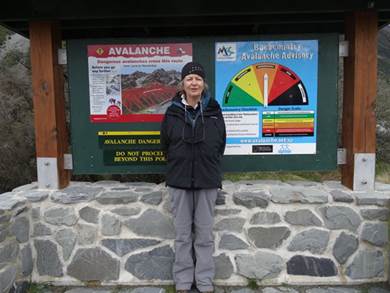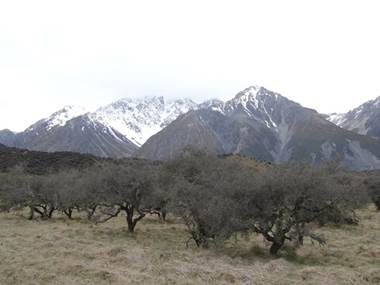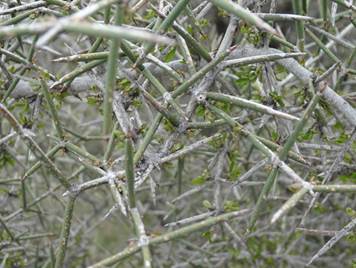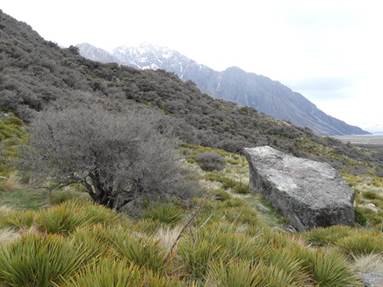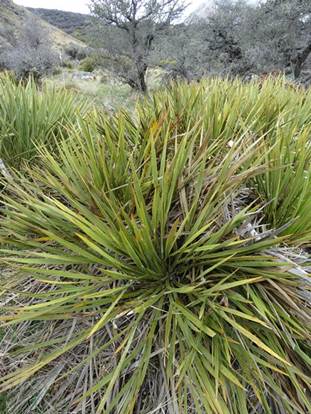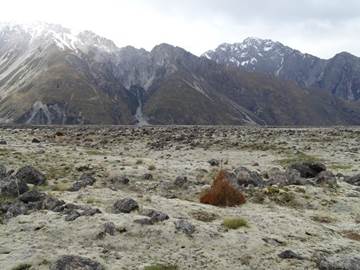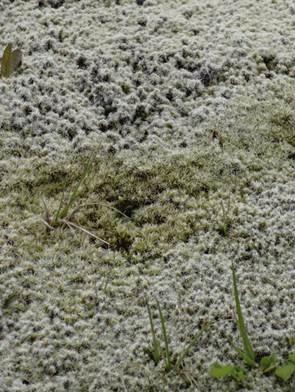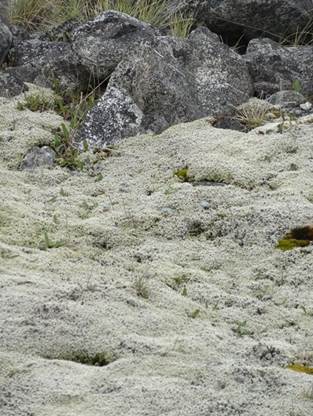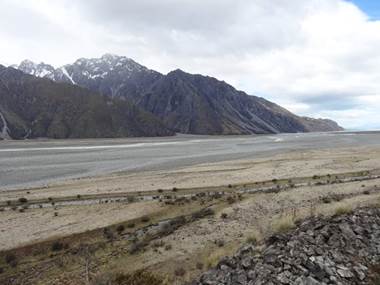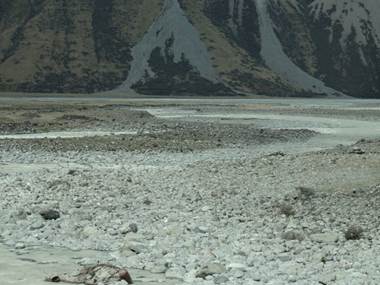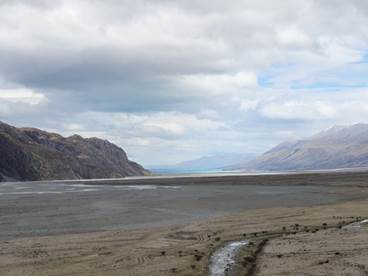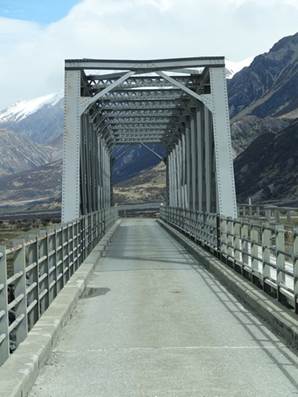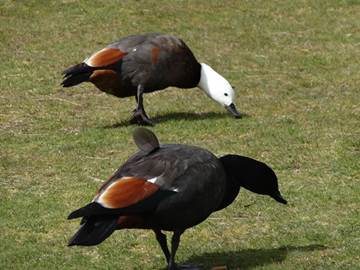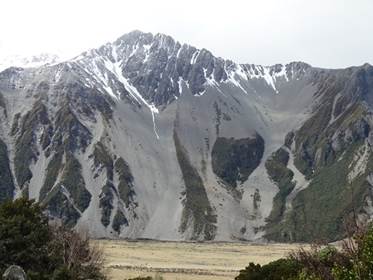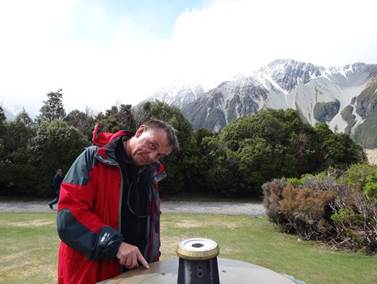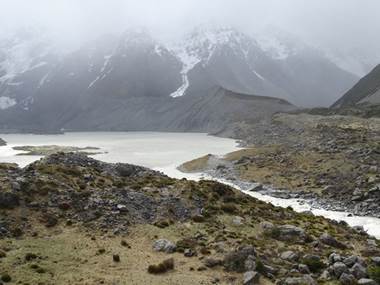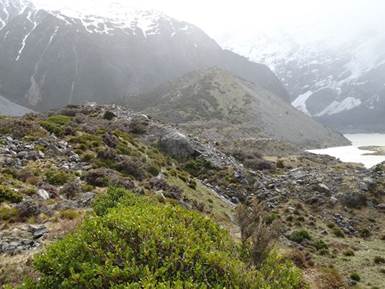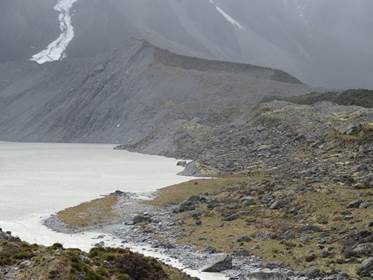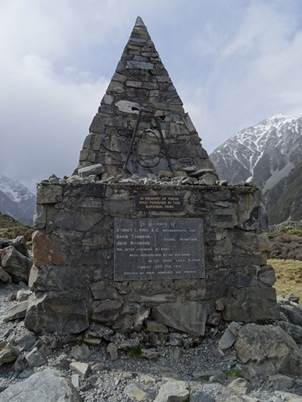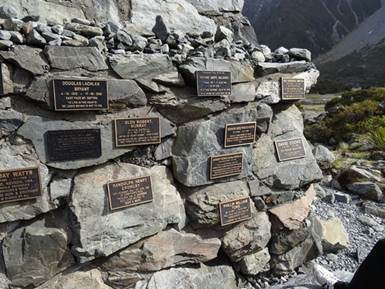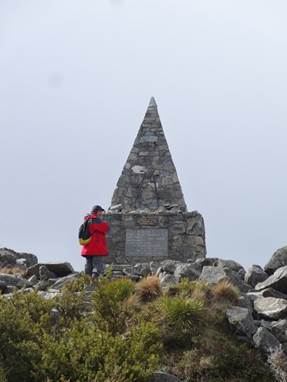Aoraki or Mount Cook National Park 2

We were going to attempt a walk along Tasman Valley Road – a track to the Blue Lakes shelter but unfortunately …..
These trees are called Matagouri (wild Irishman) – tiny leaves and long thorns make the tree look like a tangle of dead branches. Spines probably evolved to deter the browsing moas. It has nitrogen fixing bacteria on its roots that extract nutrients from the air trapped in the soil. The small hill behind is part of a moraine and the plain these trees are on is a small rock debris terrace which ends in another small moraine to the RHS – out of picture.
The grass in the foreground of the RHS picture is speargrass and there’s a big erratic (glacial left boulder to the right). The slope behind is part of another big moraine. The sharp leaf tips of speargrass are probably an adaptation to survive the drying winds. The plant was prized by Maori’s for its perfume. Apparently a gum was extracted from the leaves and mixed with bird oil.
Woolly moss covers the rocky riverbed below the Tasman glacier. It folds up its leaves when dry to conserve water – not much need for that at the moment.
Better view of the rock strewn braided river system.
You can just about make out the beginning of Lake Pukaki as a thin blue line in the background.
One of the bridges, single lane, crossed along the way. Paradise ducks, the white headed one is the female.
Mountain view from Mt Cook village. Paul pretending something was very interesting so that I would join him.
After a brief stop at Mount Cook village – not very interesting, lots of accommodation though, went to see the Mueller Lake lookout. Started to rain at this point. A hundred years ago the Mueller glacier would have filled the entire valley and you could have walked from one side of the valley to the other. The look alike hills in the RH picture are moraines.
The big slope in the RH picture marks another lateral moraine.
Memorial to all those who died trying to climb Mount Cook. Sir Edmund Hilary trained on Mount Cook before going to Himalayas.
Paul furling
|
